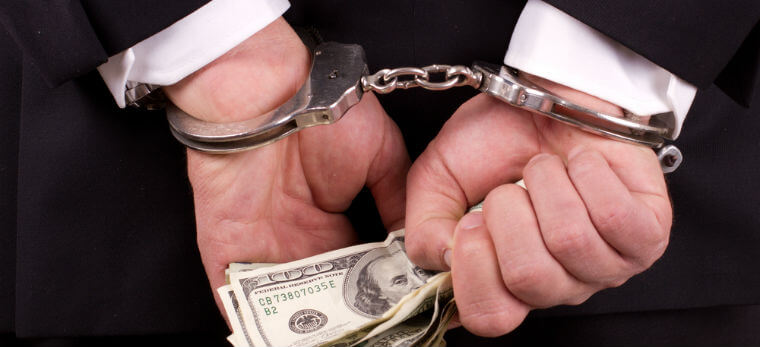Generally speaking, fraud is a legal term that means that someone has intentionally misrepresented the truth or withheld or concealed important information, which caused harm to another person, for example, the loss of money. Money loss is the most common harm caused by bank fraud, which involves fraudsters perpetrating their dishonesty in a way that involves established financial institutions. There can be both civil and criminal charges for fraud, which, if discovered, can lead to fines and jail time. In this article, we endeavor to make you aware of the various types of banking fraud that exist for your knowledge and protection.
What Is Bank Fraud?
When you deceive a financial institution to profit, you’re committing bank fraud under U.S. Code Title 18 U.S.C. 1344. So if you’re attempting to defraud a bank, credit union, mortgage lender, or any other institution where people can deposit money, you could be facing bank fraud charges. Seek the services of Seth Kretzer, criminal defense lawyer in Houston, for legal guidance.
Types of Bank Fraud + Examples
There are many different types of banking fraud. Some of the most common types of bank account fraud have been known to be check fraud (forgery or deliberate bouncing of checks), debit and credit card fraud (stolen numbers), safe deposit box fraud (faked identity), and A.C.H. fraud, but there are even more types of bank fraud than these. For example…
Accounting Fraud
Accounting fraud primarily affects business lending. Businesses that commit accounting fraud “cook the books,” so they look more profitable on paper than they really are. Based on these fraudulent statements, banks grant loans to these businesses. Still, ultimately, because the companies are less profitable than they’ve claimed – or sometimes even insolvent, they can’t repay the loans. Some may even declare bankruptcy, leaving the banks on the hook.
Loan Fraud
Similar to accounting fraud is loan fraud. This fraud can be committed by both businesses and individuals, either of whom may lie on a credit application to receive a greater amount of money than they could ever possibly repay. Another type of loan fraud involves stealing someone’s identity to take out a loan and proceeding as if their financial information is the fraudster’s information.
Wire Transfer Fraud
Wire fraud includes all cases of fraud involving wire transfers or the internet. In some cases, the scammers steal the username and password of a banking customer and then wire money to themselves. A more common method involves the scam artist convincing the victim to wire money to them by claiming to be someone in desperate need and then asking for money for a personal or business need.
In one extreme example, a person claiming to be from another country convinced someone in the U.S. to fall in love with them and then consistently demanded money in the form of cryptocurrency payments so that the person could save up enough to come to the states for a long-awaited face-to-face meeting. Unfortunately, the love remained unrequited, and the U.S. victim was left with no way to track down the fraudster to demand repayment.
Phishing Fraud
Phishing is when a scam artist uses email, phone calls, text, or other methods to obtain a victim’s banking details, for example, by asking directly or keeping the victim ‘on the line’ through ongoing communications designed to gather the information indirectly. Always be cautious with communications promising some win or benefit if you provide personal information; these are telltale signs of a scam.
A.T.M. Fraud
A.T.M. fraud includes everything from reprogramming the machine to installing a skimmer to steal card details, and this happens all too often, particularly in high-traffic areas.
Banking Fraud in Texas
Depending on the type of fraud you’ve been charged with and who the victim was, bank fraud can be either a felony or a misdemeanor. For example, if you’re accused of forgery in Texas, and the incident involved a will, mortgage, contract, check, deed, or credit/debit card, you’re facing a state jail felony.
It becomes a third-degree felony if the incident involves cash, stocks, bonds, or anything the state or federal government issued. If your forgery charge doesn’t include the items listed in the descriptions of these two felonies, it may be a Class A misdemeanor.
Regardless of how severe your charge is, Houston white-collar crimes lawyer, Seth Kretzer, can help. Call today if you’ve been accused of defrauding a financial institution in Texas.
Texas Bank Fraud Punishment
The bank fraud penalty varies depending on the exact charges the accused faces. But in general, punishment for bank fraud includes jail time and fines.
- For example, for an individual convicted of a state jail felony for forgery, the sentence could include up to 2 years in prison and up to $10,000 in fines.
- For a third-degree felony conviction, the maximum fine is the same, but the prison time could range from 2 to 10 years.
- For an individual facing a misdemeanor for this crime, the bank fraud punishment might include up to one year in jail and up to $4,000 in fines.
For these reasons, you may need an experienced lawyer to answer questions about what constitutes bank fraud and help build a defense against fraud charges.
Bank Fraud Statute of Limitations
The statute of limitations in Texas refers to how long the prosecutor can wait after the crime before charging you. Generally, the amount of time depends on the offense you’re charged with. The federal bank fraud statute of limitations is five years, meaning if the alleged crime occurred more than five years ago and you were not charged, you can no longer be charged.
The bank fraud statute of limitations in Texas varies depending on the specific charges. For example, the bank fraud statute of limitations on forgery is ten years, but it’s seven years for money laundering and credit card abuse.
Questions about Financial Fraud? Ask an Attorney
At the Law Offices of Seth Kretzer, our attorneys are highly skilled and experienced in understanding and explaining bank fraud and can answer your questions and help you with your legal needs. If you want to know more about what constitutes bank fraud or are ready to get legal help, contact The Law Offices of Seth Kretzer today.




